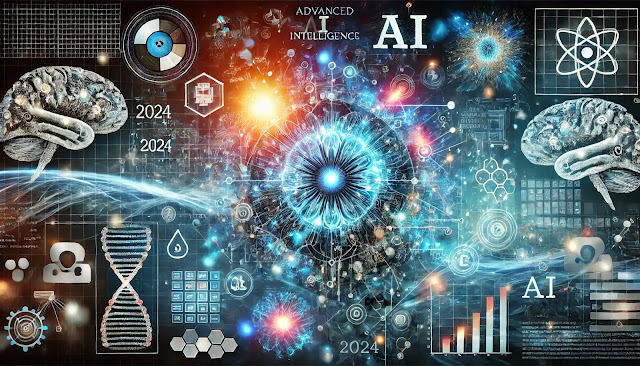The Transformative Impact of AI and ML in 2024: Innovations, Ethics, and Future Prospects

Introduction Artificial Intelligence (AI) and Machine Learning (ML) have become defining technologies of 2024, achieving remarkable advancements while profoundly influencing industries and society. From revolutionary breakthroughs in large language models to transformative applications in healthcare and mathematics, AI and ML are reshaping how we work, live, and innovate. However, alongside these developments come pressing ethical and societal questions, such as the need for fairness, transparency, and accountability in AI systems. This blog takes a comprehensive look at AI and ML in 2024, examining their most significant innovations, the ethical challenges they pose, their applications across industries, and the trends shaping their future. As we explore these dimensions, it becomes clear that while AI holds immense potential, its growth must be guided by responsibility and foresight. Major AI/ML Breakthroughs in 2024 1.1 Evolution and Enhancements in Large Language Models (LLMs) The ...





.%20The%20image%20features%20a%20network%20of%20in.webp)
